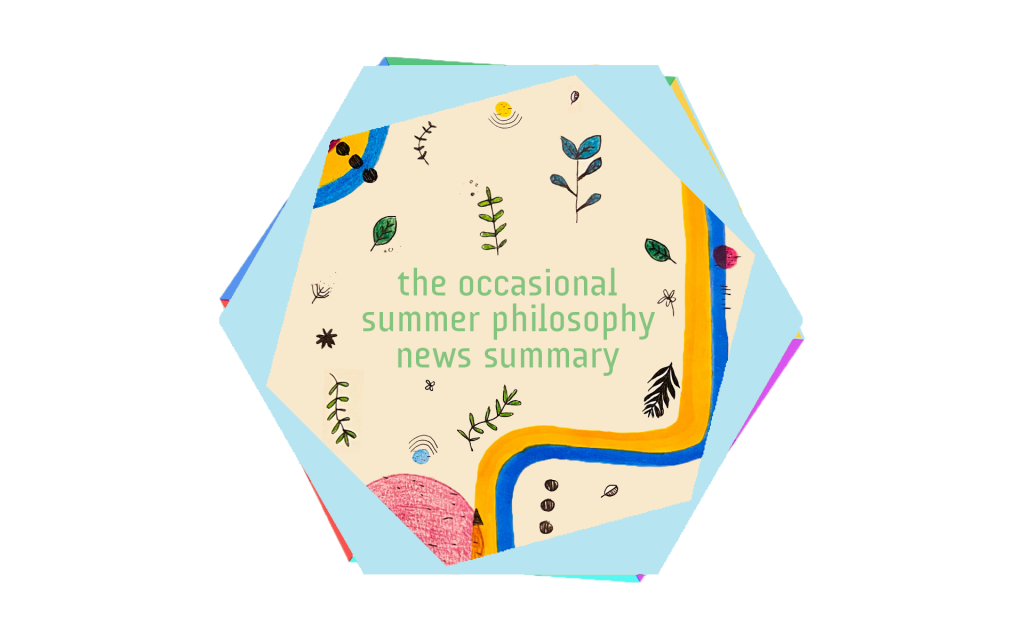Philosophy News Summary (updated)
Recent philosophy-related news*, and a request…

1. Stephen Kershnar (SUNY Fredonia), whose February 2022 discussion of adult-child sex on the Brain in a Vat podcast sparked viral outrage and led to his removal from campus, has “filed a lawsuit this week in U.S. District Court in Buffalo asking the court to declare that Fredonia’s administrators violated his First Amendment rights by removing him from the classroom after the comments he made on a podcast kicked off a social-media firestorm,” according to the Buffalo News. The Foundation for Individual Rights and Expression (FIRE) has filed the lawsuit on his behalf, Kershnar says.
UPDATE: Here is the lawsuit and the motion for injunction (via Stephen Kershnar).
2. The editors of Philosophy, the flagship journal of The Royal Institute of Philosophy, have announced the winners of their 2022 Essay Prize, which was on the topic of emotions. They are: Renee Rushing (Florida State) for her “Fitting Diminishment of Anger: A Permissivist Account” and Michael Cholbi for his “Empathy and Psychopaths’ Inability to Grieve.” Mica Rapstine (Michigan) was named the runner-up for his “Political Rage and the Value of Valuing.” The prize of £2500 will be shared between the winners, and all three essays will be published in the October 2023 issue of the journal.
3. Some philosophers are on the new Twitter alternative, Bluesky. Kelly Truelove has a list of those with over 50 followers here. And yes, you can find me (and Daily Nous) on it.
4. One philosopher is among the new members of The American Philosophical Society, a learned society that aims to “honor and engage leading scholars, scientists, and professionals through elected membership and opportunities for interdisciplinary, intellectual fellowship.” It is John Dupré of the University of Exeter, who specializes in philosophy of science. The complete list of new members is here. Professor Dupré joins just 21 other philosophers that have been elected into the society since 1957 (the society was founded in 1743).
5. I’ve decided that some news items I had been planning to include in these summary posts over the summer should instead get their own posts. These are posts about philosophers’ deaths and faculty moves. Regarding the former, it would be wonderful if individuals volunteered to write up memorial notices for philosophers they knew, or whose work they are familiar with, including at least the kinds of information I tend to include in these posts (see here). Recently, philosophers Henry Allison, Richard W. Miller, and Donald Munro have died. If you are interested in writing up a memorial notice for one of them, please email me. Generally, over the summer, these posts and faculty move notices may take longer to appear than usual.
* Over the summer, many news items will be consolidated in posts like this.




An obituary notice for Professor Munro (h/t Steven Angle at Warp, Weft, and Way, the Chinese and Comparative Philosophy blog): https://www.legacy.com/us/obituaries/saltlaketribune/name/donald-munro-obituary?id=52190226
a good number of philosophers who have been elected to the American Philosophical Society are not listed in your item. No doubt I noticed because I’m one of them. I will try to link to the announcement of the election of Alexander Nehamas.
https://philosophy.princeton.edu/news/alexander-nehamas-elected-american-philosophical-society